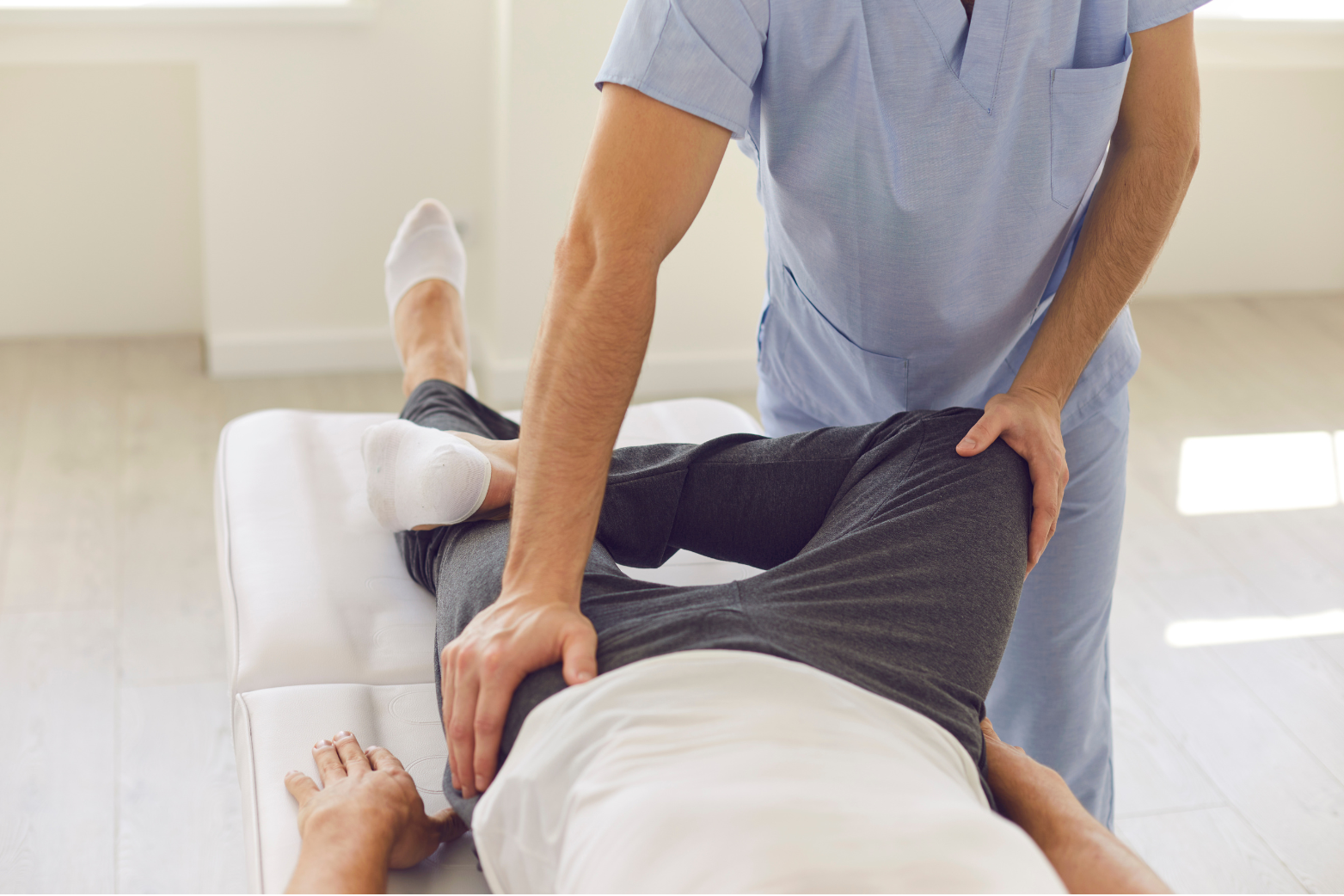
Tight Pelvic Floor & Sexual Dysfunction:
What Every Man Should Know.
If you've noticed changes in sexual function, you're not alone.
Erectile dysfunction (ED), reduced penile sensation, difficulty ejaculating, or loss of spontaneous erections can be distressing. Many men don’t realise that the pelvic floor muscles — yes, men have them too — play a critical role in sexual health.
I have particular experience offering a specialised, evidence-based approach to treating these symptoms by addressing a common contributor: overactivity (or tightness) in the pelvic floor muscles.
Understanding the Male Pelvic Floor
The pelvic floor is a group of muscles, ligaments, and connective tissue that sit at the base of your pelvis. These muscles:
Support the bladder, bowel, and postural alignment through your core
Help control urination and bowel movements
Contribute to erections, ejaculation, and orgasm
Healthy muscles allow optimal pelvic blood flow, neural innervation and build to contraction without pain
In men, the key pelvic floor muscles include the puborectalis, pubococcygeus, iliococcygeus, deep hip rotators. The muscles at the base of the penis, bulbocavernosus and ischiocavernosus muscles are directly involved in stabilising erection and propulsion of ejaculation.
What Is an Overactive or Hypertonic Pelvic Floor?
An overactive pelvic floor means that some or all of the pelvic muscles are too tense or unable to relax fully, even when you try to relax. This tightness can interfere with normal sexual, bladder, and bowel function.
Think of it like this:
Imagine trying to run while constantly clenching your calf muscles — they would fatigue quickly, lose coordination, and eventually spasm/cramp making them unable to function. The same can happen in your pelvic floor.
How Can a Tight Pelvic Floor Affect Sexual Function?
Overactive pelvic floor muscles can:
Impair blood flow to the penis, making it difficult to achieve or maintain an erection
Compress nerve endings, reducing penile sensation or pleasure
Restrict ejaculation or result in weak or dribbling release
Suppress the normal reflex pathways that trigger spontaneous erections
Increase baseline tension, leading to performance anxiety or pain
These muscles may also be unknowingly bracing due to stress, trauma, poor posture, or habitual clenching (like during gym workouts, bowel movements, or even from chronic anxiety).
Common Contributing Factors
Men may develop pelvic floor overactivity due to:
Chronic stress or anxiety
Prolonged sitting or poor posture
Previous pelvic injury, surgery, or prostatitis
Habitual pelvic clenching (during gym, urination, or bowel movements)
Irritable bowel syndrome (IBS) or constipation
Pain after ejaculation or urination
Sexual performance pressure
Persistent pelvic pain
Other Symptoms That May Suggest Pelvic Floor Involvement
If your pelvic floor is contributing to sexual changes, you may also notice:
Bladder symptoms:
Urinary urgency (rushing to the toilet)
Slow stream or difficulty initiating flow
Hesitancy or stopping and starting
Feeling like your bladder never fully empties
Bowel symptoms:
Straining to pass stools
Incomplete emptying
Frequent need to return to the toilet
Constipation or alternating bowel patterns
Pelvic pain symptoms:
Pain in the penis, perineum, or rectum
Discomfort with ejaculation or prolonged sitting
Testicular or lower abdominal aching without a clear cause
How Can Pelvic Health Physiotherapy Help?
A specialised pelvic health physiotherapist can:
I am able to assess your pelvic floor muscle tone, coordination, and strength
Use tools such as real-time ultrasound or manual palpation
Teach you how to relax and lengthen pelvic floor muscles
Guide you through breathing, posture, and movement techniques
Address contributing factors like bowel health, anxiety, or muscle imbalances
Many men improve significantly with a targeted, non-invasive plan that helps restore pelvic floor balance — rather than simply strengthening.
It’s Not Always About Strengthening
Most men think pelvic floor exercises (Kegels) will help. But if the muscles are already tight or overworked, more squeezing can make things worse. In most cases presentation as above, you will need to learn how to relax and lengthen your pelvis and hip muscles, to then begin to strengthen again.
Take the Next Step
If you’re experiencing changes in sexual function — and if any of these additional bladder, bowel, or pelvic symptoms sound familiar — it may be time to explore your pelvic floor and sought advice from a pelvic physiotherapist advanced in this area of treatment.




